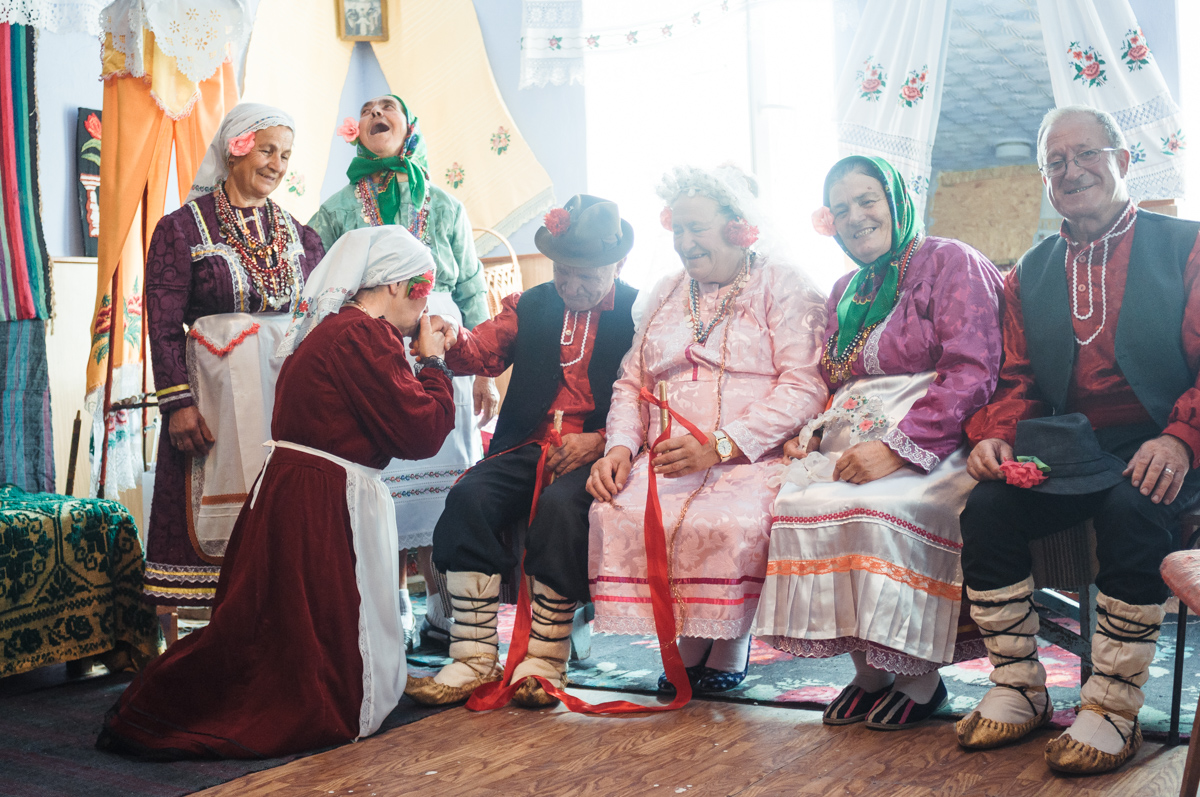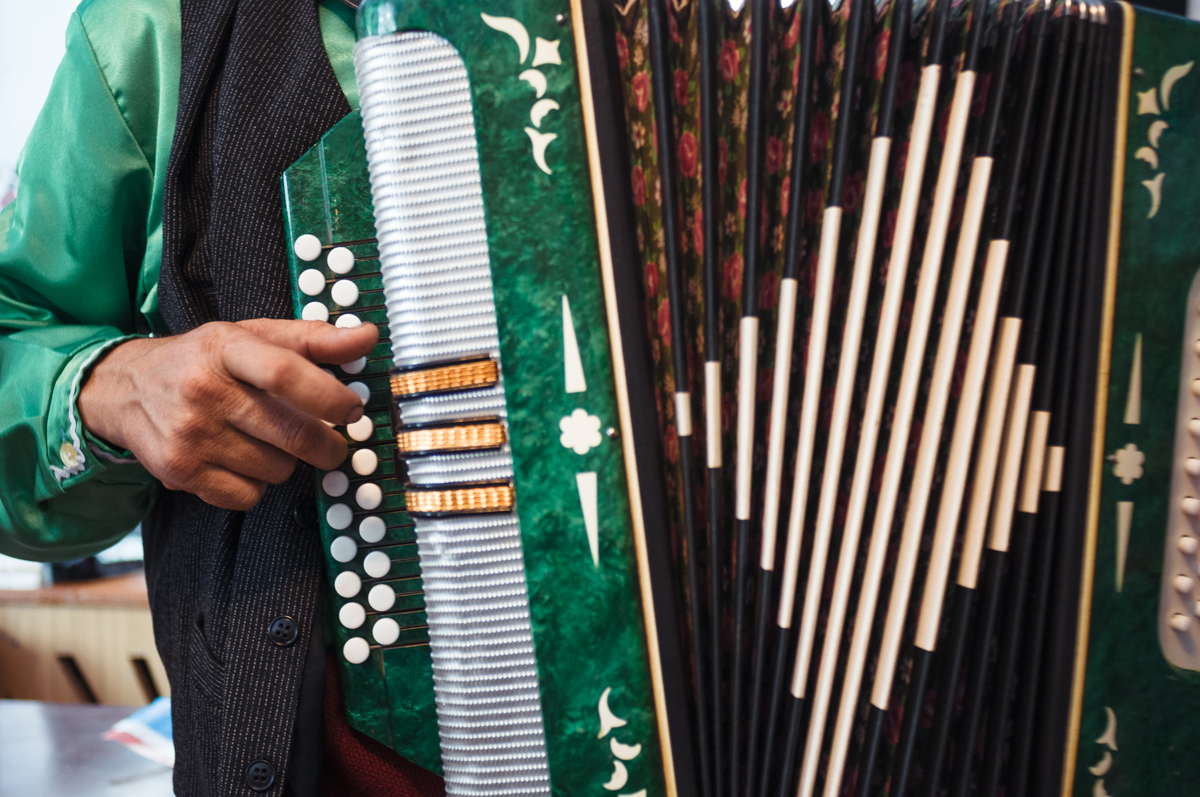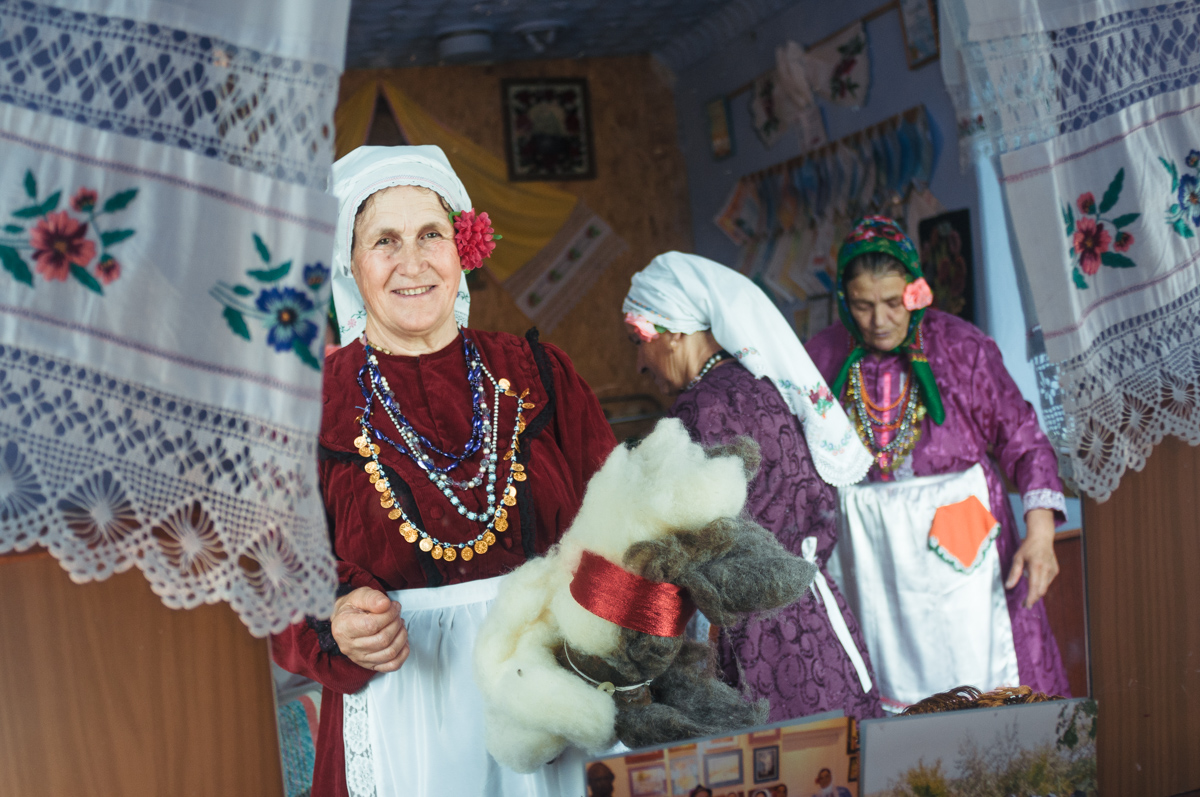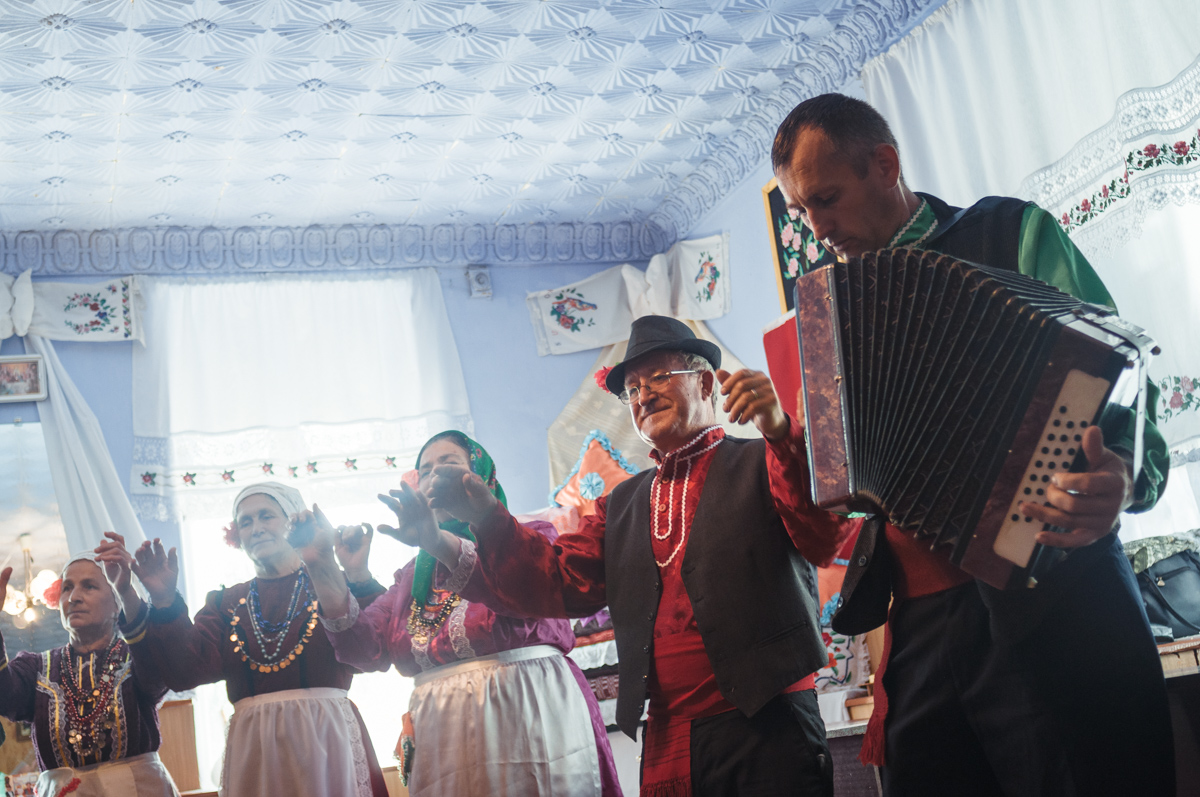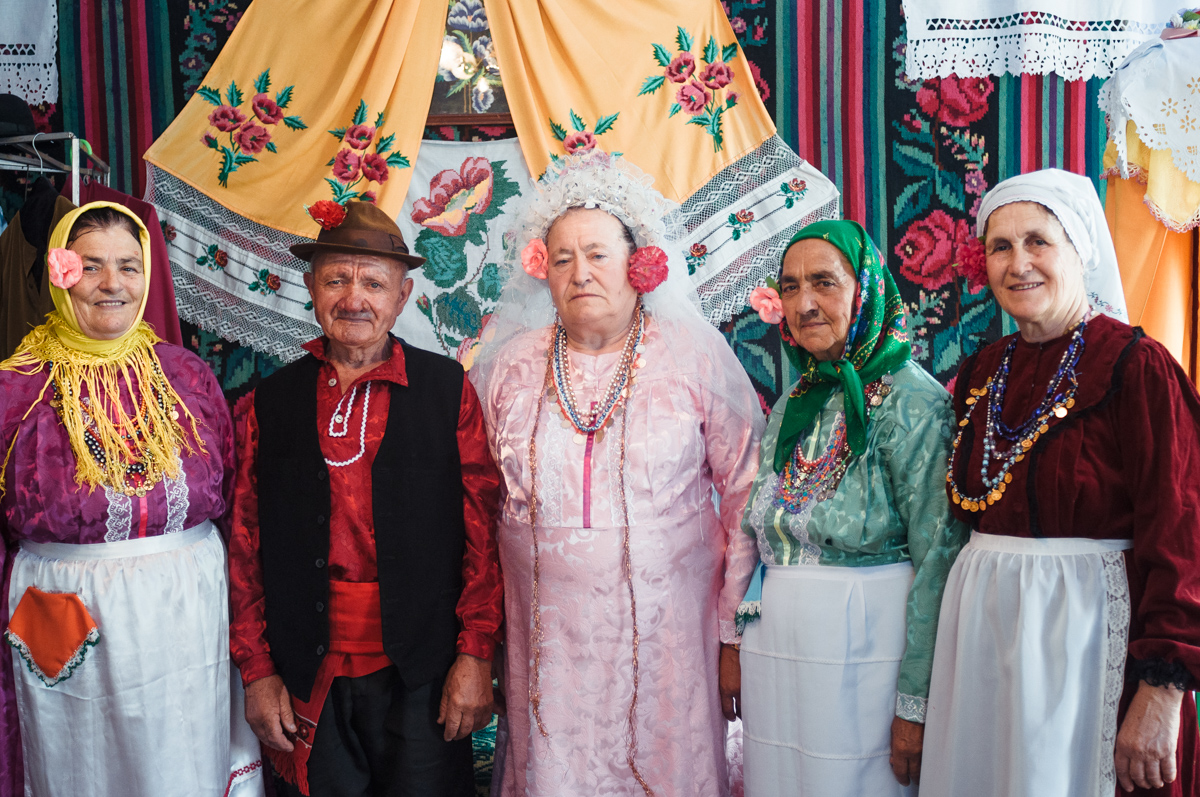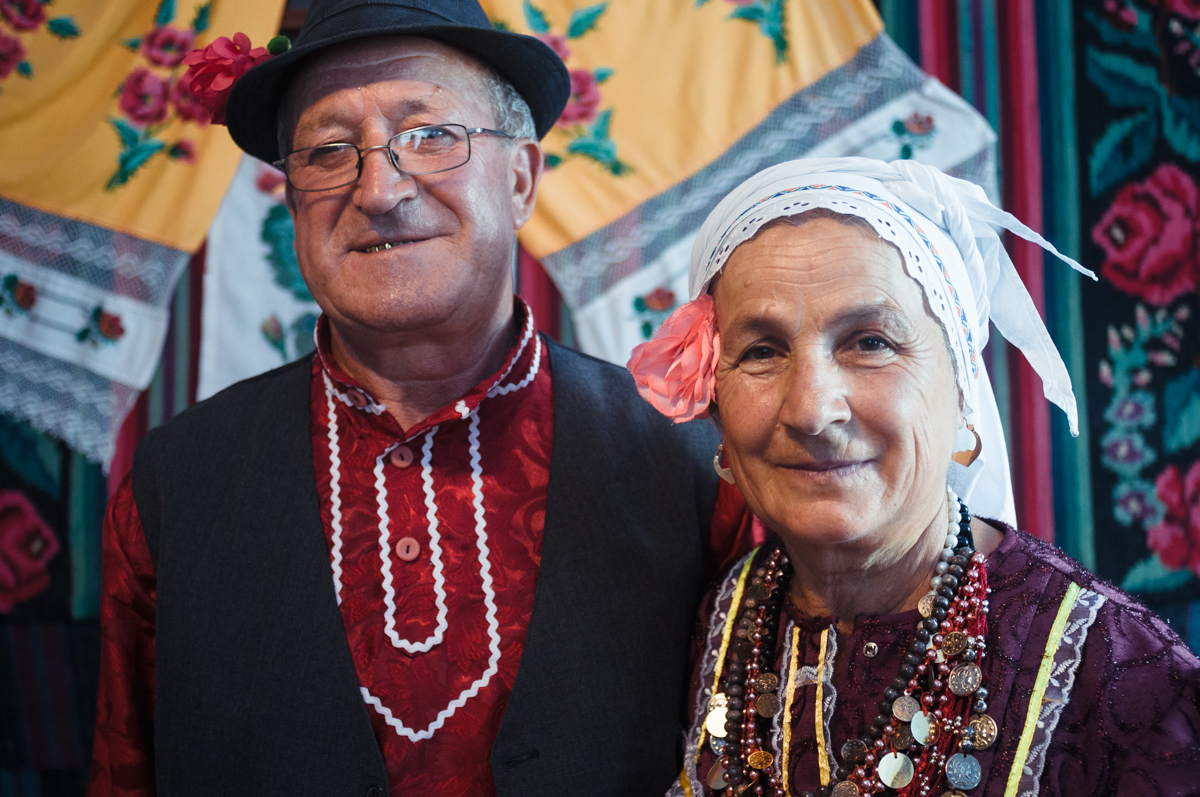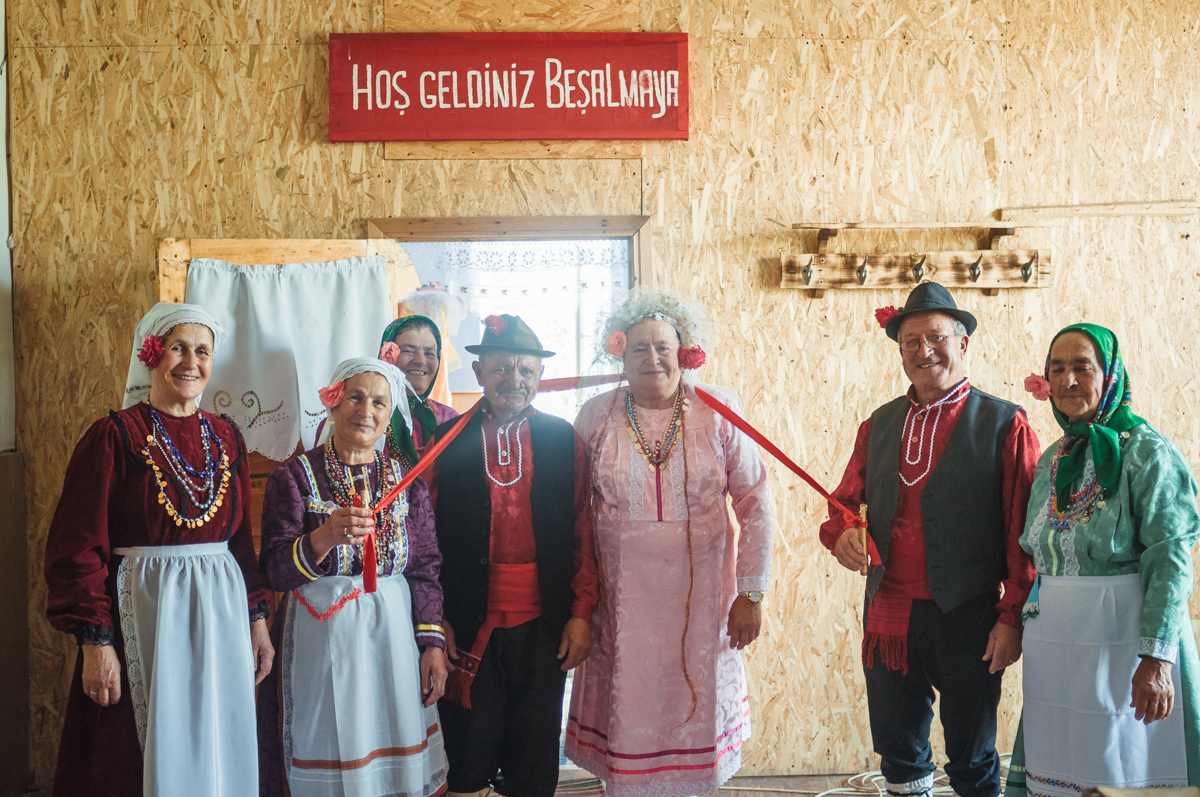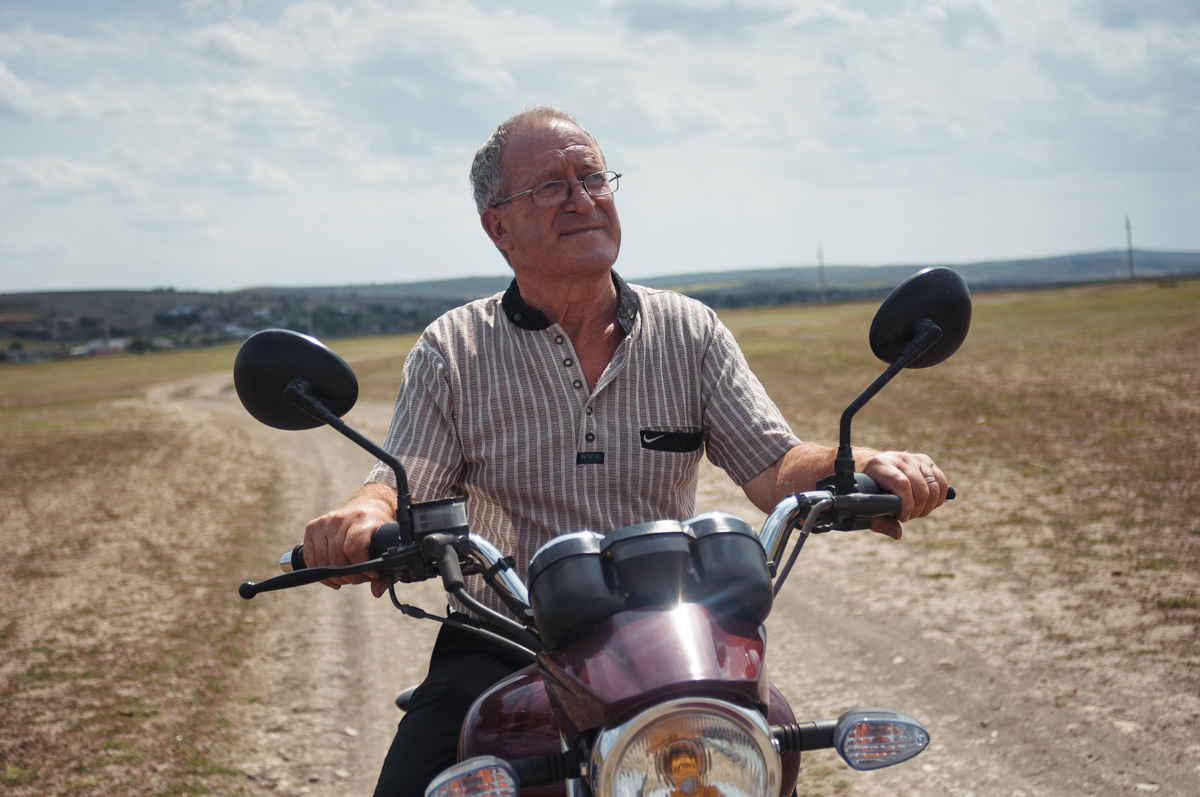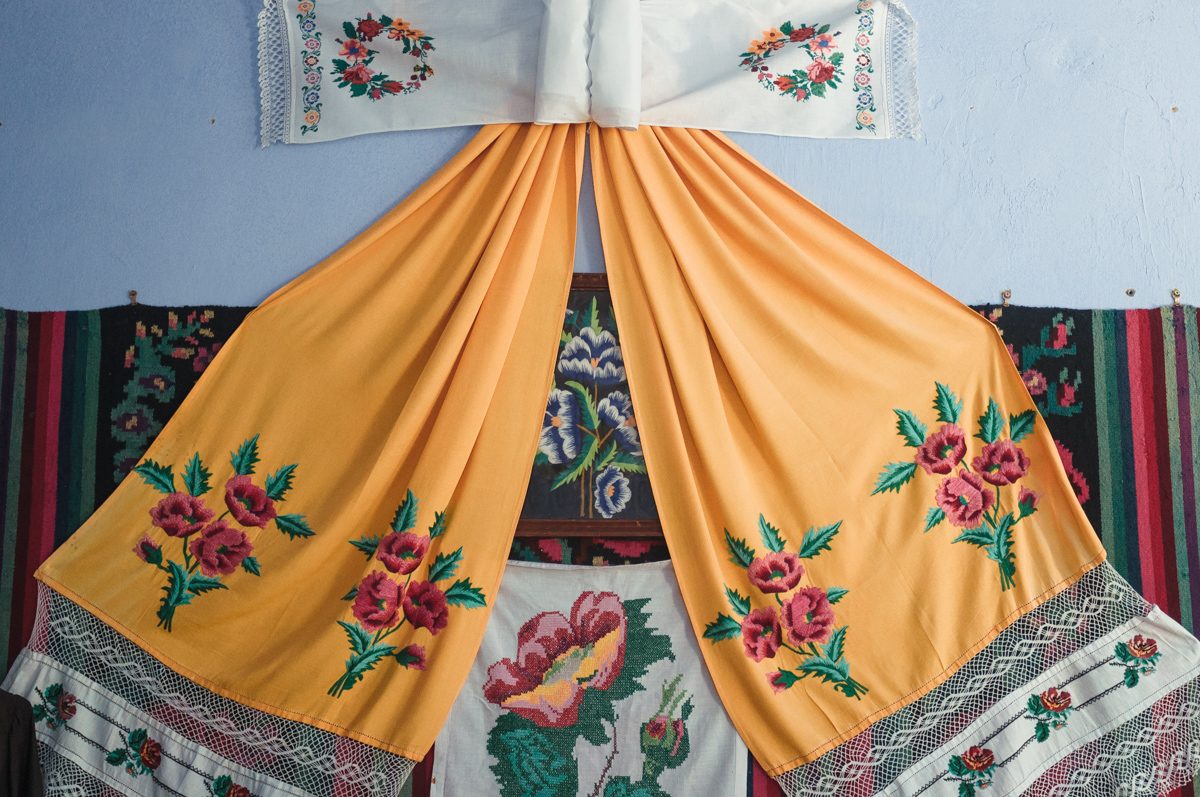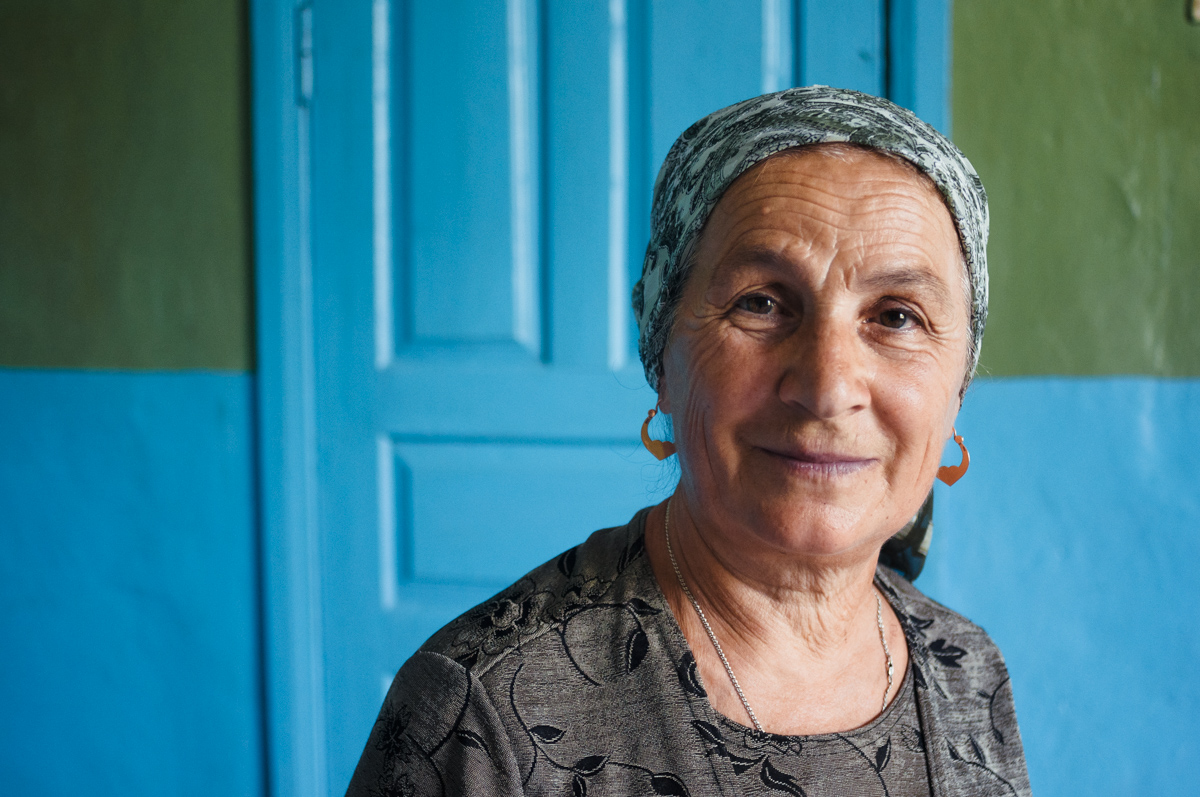Noon, Besalma. In August, the sun heats the Bugeac steppe so much that all living creatures – birds, animals and people – have to seek salvation somewhere in the shade. On the second floor of the local Community Center, in a small room, eight people gather together for a rehearsal. Each of them is a devotee. They gather together every weekend, learning new songs; practicing in order not to forget old ones; and communicating with each other because they are all good friends.
“Sedef” – or a “pearl” in English – is a folk music group, which was established in 1975 under the guidance of Avraam Petrovich Chesea. In 1976, the title “Honored” was awarded to the group. Before, Besalma was considered to be a singing village, but now many other music groups follow the example of Besalma. Several months ago, [in summer 2019], Georghi Dmitrievich Capacli – a man with a song in his heart – became the head of the group.
Georghi Dmitrievich Capacli was born in 1953, in that very village. He met his future wife while still at school, in the first grade. This year they will celebrate their anniversary – 45 years of marriage. They have four children, this year the youngest turned 23. All their children have moved to Russia. Georghi Dmitrievich and Valentina Dmitrievna Capacli are united not only by the same family name and shared life, but also by their group, which they love dearly and in which they perform together.
A Turkish flag, certificates of honor from various festivals, traditional household items, a Gagauzian tapestry on the wall – these are the items their rehearsal room is comprised of. Middle-aged people dance holding hands. In the surroundings, the air vibrates with Gagauzian songs. When the sounds of the last song die down, all the people in the room join hands and give a bow to an invisible audience.
When everyone leaves, Georghi Dmitrievich picks up an old notebook yellowed with age – it is the group’s songbook, or as he refers to it a “crib sheet”. In this notebook, more than 70 songs devoted to various topics were written by hand: about Gagauz traditions, real-life situations, and war. Some songs are performed with accompaniment, others a capella. The group has gained a broad popularity. In addition to touring in the country, sometimes they travel to perform concerts abroad. For example, in 2016, they gave two full concerts in Turkey.
And tourists come to visit them. With particular pride, Georghi Dmitrievich lists the countries from which guests have traveled to see them – from Canada to Japan. He welcomes tourists from Turkey with special warmth: it is very easy to communicate with them even without an interpreter, because the Turks understand the Gagauzian language, while the Gagauz understand the Turkish language.
There is a smell of wood in the room. Georghi Dmitrievich takes old photos from their tours down from the shelf and shares his thoughts about the autonomy, about Moldovans and why now everything is not as smooth as he would wish it to be:
To be a Gagauz – I cannot even imagine myself to be someone else. I was born here. We even have a song: ‘was born as a Gagauz and would die as a Gagauz”. Recently we became very famous; people come to visit us from Japan, Canada, Germany, the Netherlands, England and even from Africa. They see that we survived as a nation, we preserved our language. It was almost gone, but now there is [stability]. Caracioban, at the time when we started going to school, he began teaching the Gagauzian language. He also made short documentaries [about Gagauz]. Now of course, there is equipment, everything is easy, but back then it was very difficult.
It is very important that people are always friends, as brothers. There should not be any disagreements between nations. Each nation has its own specifics, but they should live in peace and friendship. It is never a hindrance, on the contrary, it is even better. When a person experiences friendship, life is easier for him / her to live.
Gagauzia is the South of Moldova. We have the most fragrant fruit and vegetables, because we have the highest solar activity, which affects the quality of any products that grow on the earth. It seems to me that there is no any significant difference between us [and Moldovans]. We also have Moldovan songs and choirs. We have been on this land for a long time. When there was no Romania yet, there was Greater Moldova, as far as I know. There are old maps, and everything can be seen there. History is conveyed gradually, from person to person. You could say that without knowing the past, there would be no future.

I would like to see a halt to the outflow of youth. There was a huge outflow in the last 10 years. At first, they just went to earn money and returned, and later they started settling there, and then stayed there. There is no work; farms have closed. In each subdivision, 3-4 trucks used to take people to work, and sometimes there were up to 6, 7 or even 8 work teams. Mechanization, everything worked. And what do we have now?

His question hung in the air. Georghi Dmitrievich was born in 1953, in Besalma. Immediately after graduating college in 1977, he began to work in his local collective farm as an electrician, energy man and mechanic. After the breakdown of the Soviet Union, the collective farm continued to function, but its production volume reduced significantly. For the last two decades, Georghi Dmitrievich has taken an active role in the life of his folk group. It is thanks to people like Georghi Dmitrievich that the Gagauz identity has survived until now, because folk music is an integral part of folk art. By means of songs, history is conveyed by word of mouth, from generation to generation.



